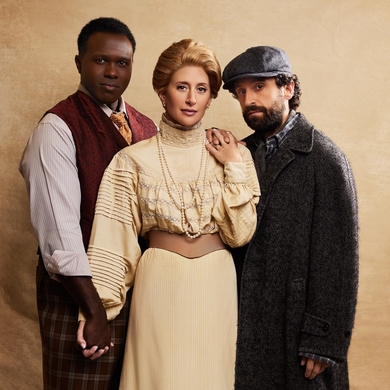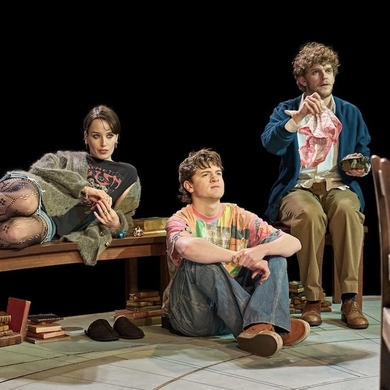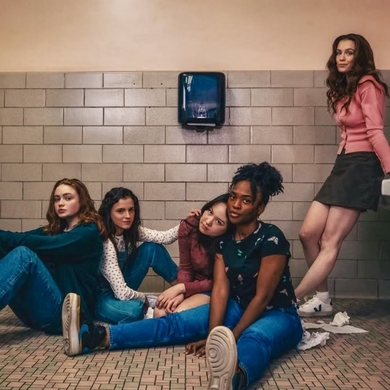The Curtis Institute of Music celebrates its alumnus Leonard Bernstein (Conducting, ’41) with a performance of Candide, after Voltaire’s misanthropic satire. Given the innumerable revisions of the show up to and beyond its Broadway premiere in 1956, every revival must confront difficult editorial decisions. With his extensive track record in American musical theater, the London-based American conductor David Charles Abell is just the scholar–performer for the task. In his signature naïveté, Voltaire’s eponymous love child bears a family resemblance to the tragic wastrel of Igor Stravinsky’s The Rake’s Progress, and it was the same matinee idol, Robert Rounseville, who created both roles. In the intervening years, many a tenor has shuttled between them to convincing effect—perhaps Philly’s current Candide, Landry Allen, will follow suit. Emilie Kealani assays his fickle inamorata Cunégonde, a role launched by Barbara Cook, the inimitable Broadway ingénue with the technique and the nerves to sing the ultra operatic “Glitter and Be Gay” eight shows a week—a precedent seldom followed when Candide transfers to the opera house. Emilio Vasquez rattles on about the Best of All Possible Worlds as the philosopher Pangloss, with Katie Trigg on point as the Old Lady with one buttock who (in Bernstein’s own lyric) Is Easily Assimilated. —Matthew Gurewitsch
Arts Intel Report
Candide, by Leonard Bernstein

The art for Candide at the Curtis Institute of Music.
When
April 11, 2025
Where
1726 Locust Street, Philadelphia, PA 19103, United States
Photo courtesy of Curtis Institute of Music



